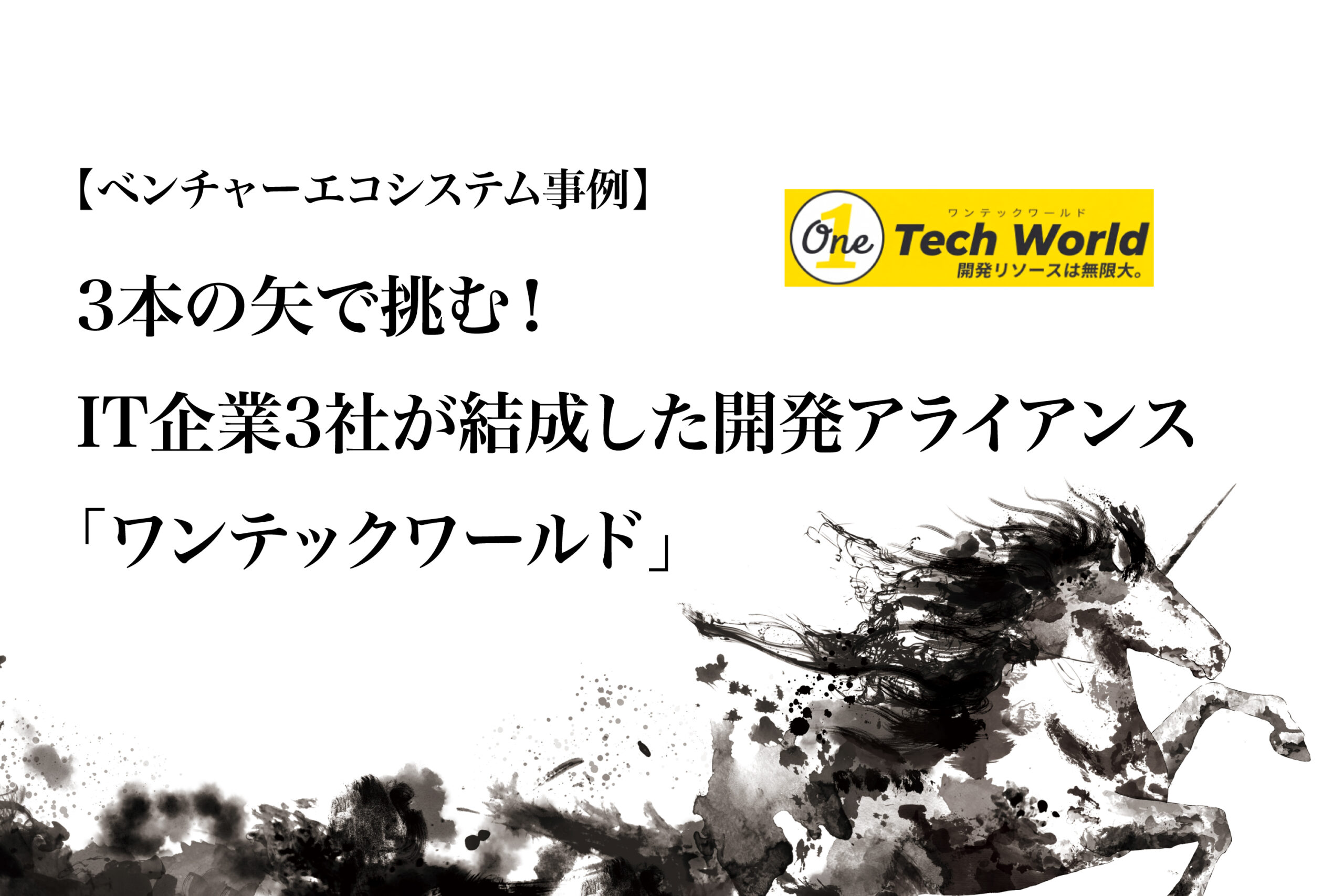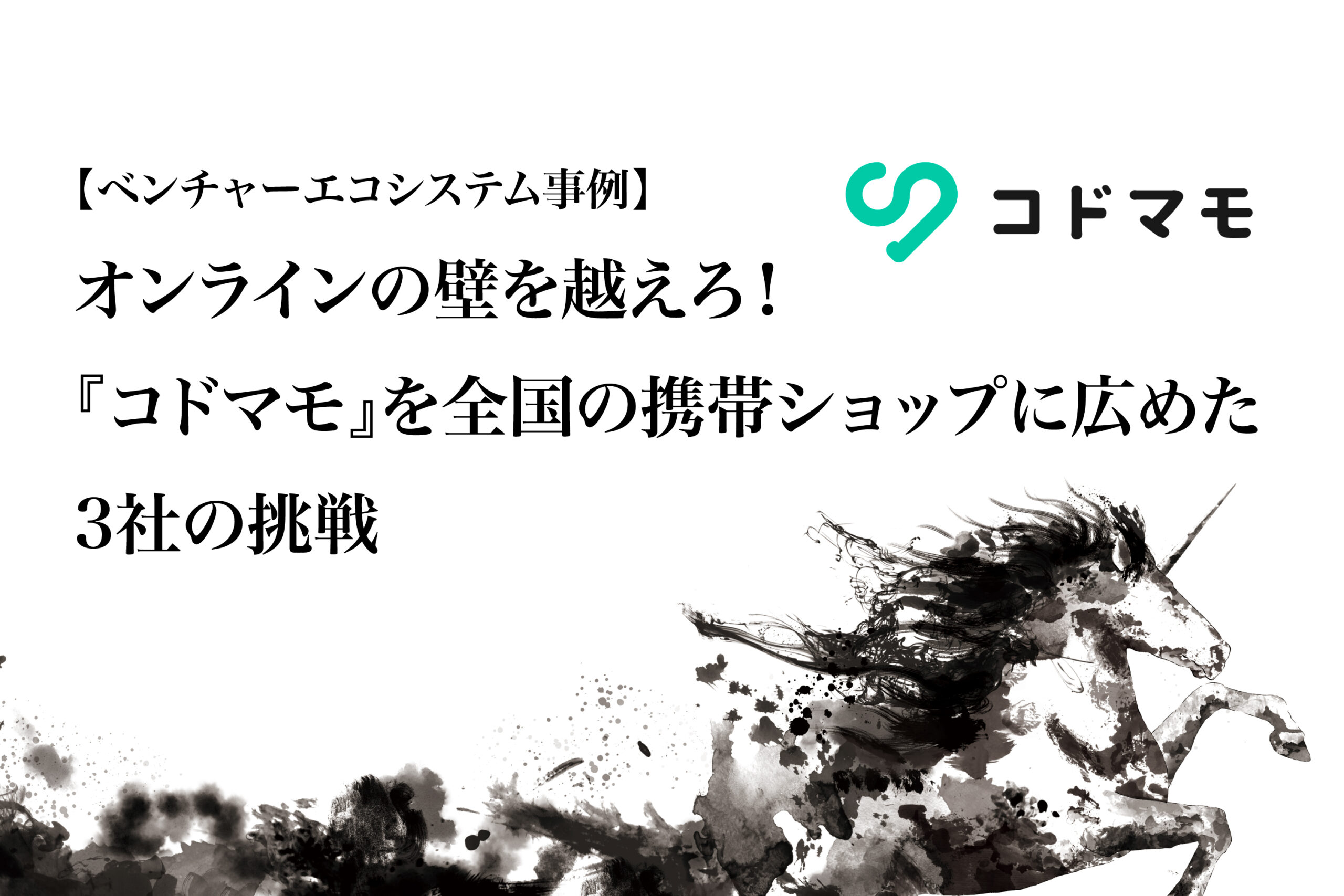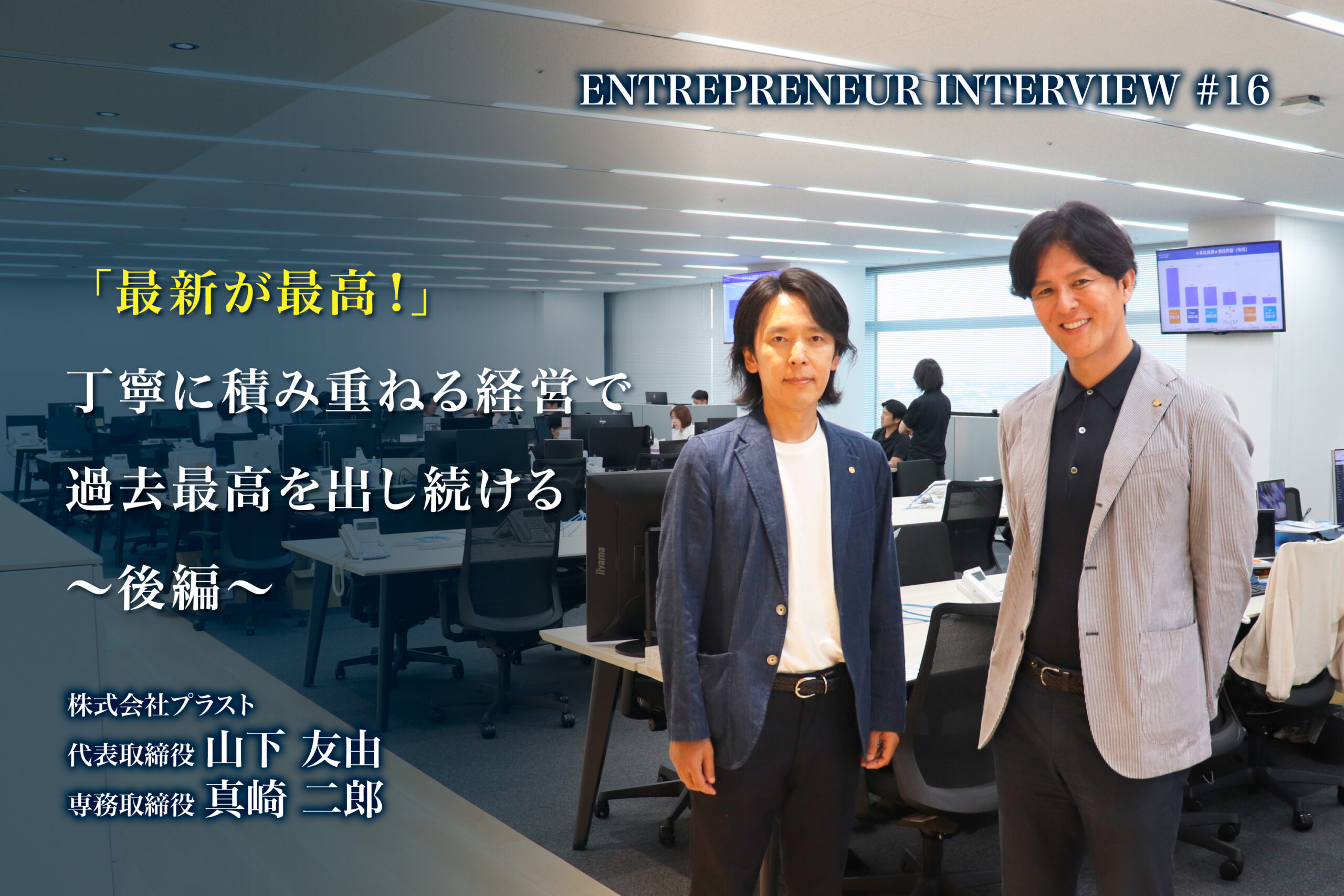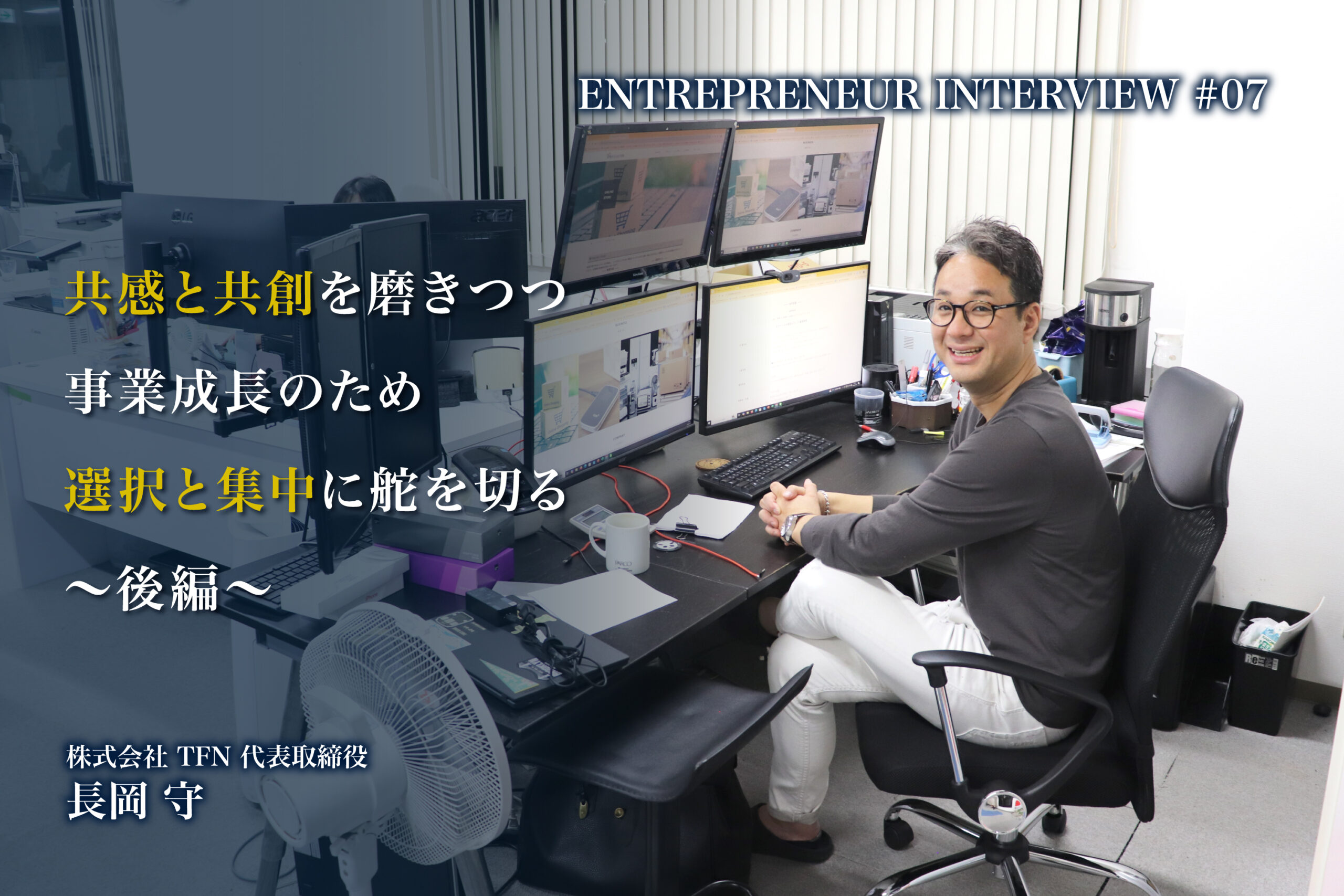
Steering towards selection and focus to grow the company while refining empathy and co-creativity
D-POPS GROUP has 23 group companies that we call partners (at the time of publication).
For this article, we interviewed Mamoru Nagaoka, the CEO of TFN, which joined D-POPS GROUP in 2018.
This is the latter part of the interview. To read the first part, click the link below.
https://d-pops-group.co.jp/en/column/tfn-interview-first-part/
◆Selling Off a Business
Sugihara:
I see. So, could you tell us more about the sale of that telecommunications business?
Nagaoka:
I started thinking about selling the telecommunications business around January of this year (2024). I had been re-evaluating our business and considering how to grow it, and the idea of selling the telecommunications business, as I mentioned earlier, crossed my mind.
When we actually started moving on it, it was June. Actually, I had proposed the idea to President Goto once before, when the telecommunications business took a massive hit during the pandemic. I told him that the industry itself was doing poorly, and since we didn’t know when things would return to normal, simply holding on to it was a risk. At the time, he had a contrary opinion, so I figured that it probably wasn’t a good idea after all.
But this year, I proposed it once again. Now, I had already made up my mind, so I decided to convey my thought process to him once more, regardless of what President Goto’s opinion would be, and he ended up saying, “That’s a good idea.” Of course, this time, my thinking wasn’t that we were selling this business simply because it was failing. Rather, we decided to sell it because we had encountered another company we felt could help grow that telecommunications business.
Sugihara:
Ah, so the selling of this business was about selecting your focus. What is the business you’ve decided to focus on now?
Nagaoka:
The mobile accessories business within e-commerce, only. We currently sell a variety of things like bicycles and suitcases, but the ultimate plan is to consolidate it all into mobile accessories. And whether it’s our company’s own products or those we procure from other companies, we intend to fully capitalize on them.
Right now, what we prioritize most in the e-commerce business is customer success. It’s obvious that we need to make things quickly or create good products; I believe the ultimate goal is for the product to reach the end user and for them to become a fan of our brand. So, if we’re going to do manufacturing, it’s important to become number one in sales or the market, but I also want to move toward a mindset of delivering better products.
Sugihara:
Here’s one thing I find distinctive about TFN’s business: you’ve obtained the rights to create designs for some well-known places, haven’t you?
Nagaoka:
Yes, indeed. Currently, the companies that are cooperating with us as suppliers are the original rights holders. We collaborate with them on everything from product development to market strategy. So, our approach is not to simply keep everything within our own company, but to partner with a variety of manufacturers and suppliers.
Then, going back to what I was saying earlier, since we internally develop our own tools for market research and sales analysis, we’re able to give better feedback to the manufacturers. This means that we can provide a more thorough, or different, kind of report than a typical retailer or vendor. I feel that being able to do that creates a good synergy.
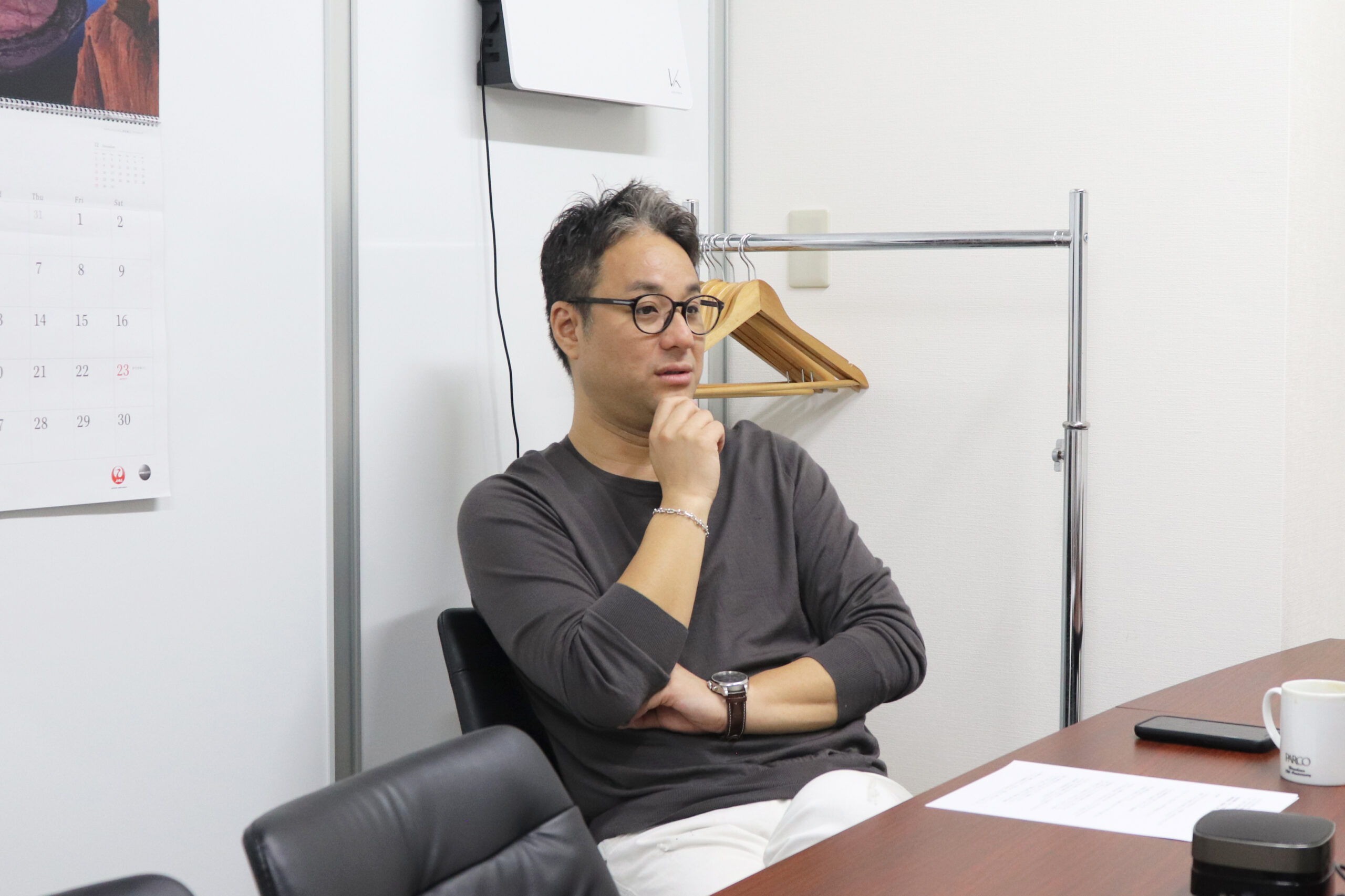
◆Company Culture
Sugihara: Thank you. So, my next question is, what is the culture and atmosphere like at TFN?
Nagaoka: In the beginning, I was told by a then-advisor to TFN, who had previously served as an executive director at SoftBank, “Empathy and co-creation will become absolutely essential from now on. If you don’t have something that customers feel is good or that they can empathize with, you definitely won’t go anywhere.”
At that time, our user reviews were honestly not very good. From that point, we decided that we would prioritize “empathy and co-creation”—in practical terms, how we would face our customers and how we would improve—and the company changed a lot. So now, within TFN’s culture, we value focusing on the customer above all else. For example, when it comes to corporate clients, we make a point of meeting with them in person and not making decisions based on assumptions. We place a lot of importance on that. Of course, we look at the data from our system that I mentioned earlier, but we are very careful to act only after making a proper judgment based on both the data and the facts we gather from meeting in person.
Sugihara:
That’s a wonderful culture. My next question is, could you tell us about any initiatives you've undertaken since joining D-POPS GROUP, and what benefits have come from being part of the group?
Nagaoka:
I think this probably varies from person to person, but for me, the biggest benefit was learning a new way of thinking. I believe this holds true within my own company as well: whether a person acts or not, or what they choose to do, ultimately depends on their own will.
For example, I was the one who decided to join D-POPS GROUP. It wasn’t a decision made for me by someone else. This is a concept that I really value in my own company. By joining D-POPS GROUP, the scope of my judgment and thinking expanded. For instance, the way I now think about things when the company falls into a deficit is fundamentally different from before. But that doesn’t mean the old way of thinking was wrong; it’s just a different perspective. I believe it’s up to the individual to interpret these concepts.
President Goto is quite well-known within the EO (Entrepreneurs’ Organization), and I've never heard anyone speak badly of him. With most people, there’s always at least one person who has something negative to say about them, but I’ve never met anyone who holds a grievance against him—not even once. I think that’s a bit of a miracle. I am grateful for the environment where I can learn a mindset and philosophy from someone like that.
President Goto trusts my company, regardless of whether it’s in the red. But because he trusts me, there’s also a certain pressure to perform, ha ha. Having him around definitely keeps me on my toes. Also, the fact that he entrusts everything to the CEO of each group company is another merit. It’s really surprising just how rarely he visits each group company, ha ha…but nevertheless, he’s watching the numbers extremely closely.
◆“Realizing a Venture Ecosystem”
Sugihara:
He’s definitely watching them, ha ha. Now, D-POPS GROUP has the goal of “realizing a Venture Ecosystem”. In light of this, have you collaborated or done business with other companies in the group?
Nagaoka:
Not really, yet. However, just recently, someone from another group company came to our office to learn about e-commerce. Their president suddenly contacted me and said, “I’ve always wanted my company’s members to try their hands at e-commerce, so I’d like to send someone over. You wouldn’t need to worry about teaching them; instead, could you just let them learn by doing menial tasks?” So, a person came to our company, and they truly worked hard, asked our employees countless questions, and of course, I gave them advice as well.
In the end, they must’ve generated about 1 million yen in sales. They didn’t conduct a formal P&L statement regarding the exchange, but their president was simply pleased to see the member’s growth. In an ordinary business partnership, we probably would’ve negotiated a service fee or something similar, but this kind of apprenticeship was made possible by both of us being a part of the same D-POPS GROUP.
Also, I myself am not really the type to be taught things; I’m more of the type to just watch and learn. So, just listening to the reports at the management meetings is a great learning experience. I also make sure to keep a close eye on the same companies that President Goto is watching.
Ultimately, I believe that M&A and CVC arrangements won’t succeed without a good business model. President Goto is constantly thinking about this, so I feel like if I look at the companies he chooses to invest in, I can reverse-engineer some answers to the question, “What is a good business model?” Looking at it from that perspective, you can start to figure out what kind of business models he’s currently paying attention to.
Maybe it’s because of the type of person I am, but whenever I meet President Goto, he gives me a book. What’s amazing is that he always seems to choose the very book that I need at the moment. So, I always make sure to give him my thoughts on the book after reading it. I think he’s able to sense what I’m struggling with from his own experience, and he gives me those books and provides me with spot-on advice.
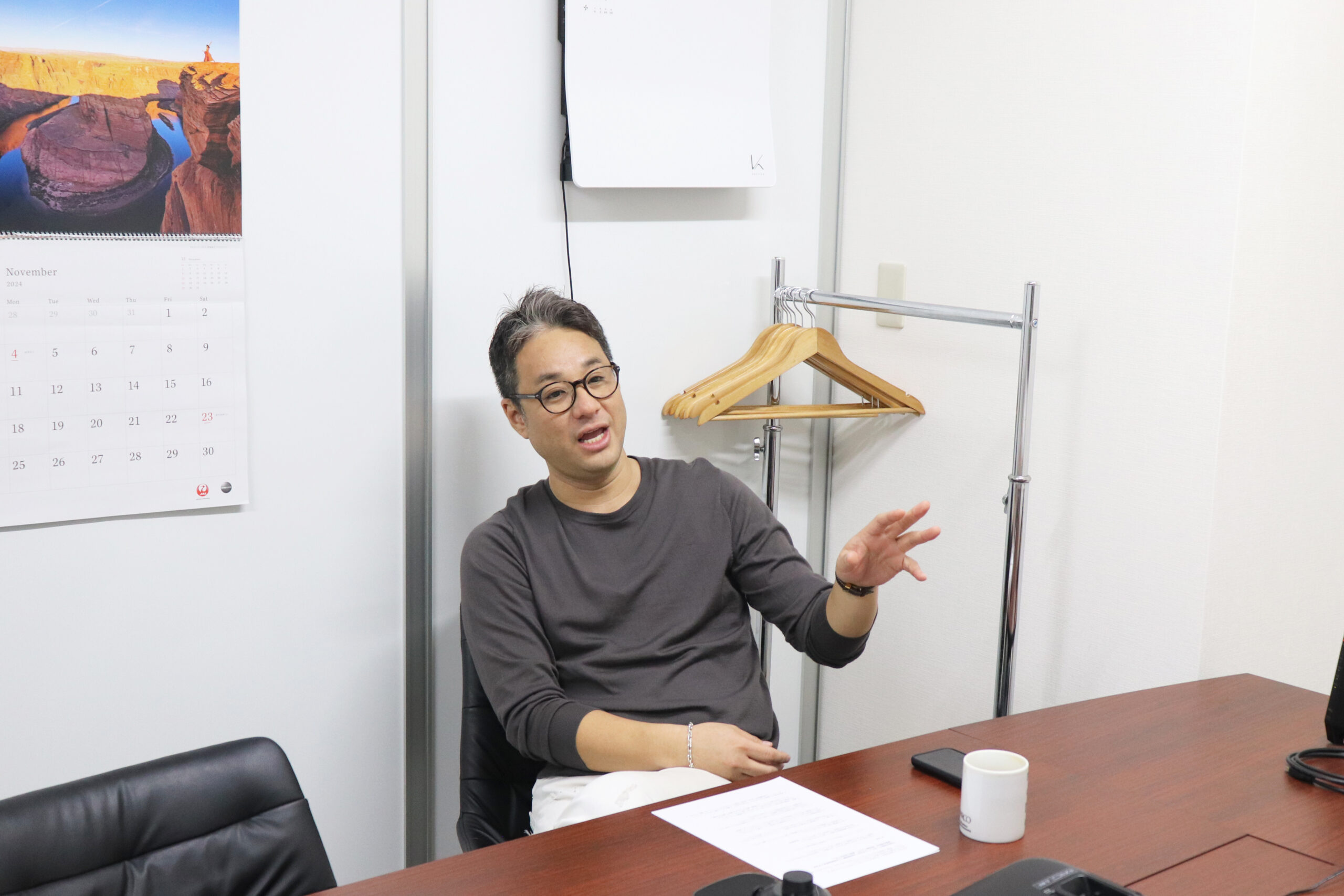
◆10-Year Vision
Sugihara:
Thank you. Now, could you tell us your ideal vision for TFN 10 years in the future?
Nagaoka:
Something I’d like to do someday is group management. I have a feeling that’s where I’ll end up. When I look at other entrepreneurs, some are growing their companies with just a single business, but I think it’s quite difficult to build a company worth hundreds of billions of yen with only one business. For example, even in the restaurant industry, you probably can’t create a trillion-yen company with a ramen shop.
When I joined the group, D-POPS was primarily a mobile phone shop business, and now they are in a completely different place: creating a Venture Ecosystem. But when I look at the movements and developments of D-POPS GROUP, I think what President Goto is doing is probably the best possible way for a business owner to grow their company.
So, while I don’t know if it will be three, two, or five companies, I’d like to create a structure where, for example, we have the e-commerce business we’re doing now at TFN, and then we branch out into corporate sales of smartphones, or make system development a separate entity, or maybe even become an e-commerce agency. That way, even if the e-commerce business doesn’t do well, we could be successful in system development, or the e-commerce agency company could be profitable, allowing us to help each other out. That’s something I want to build. I think that’s what I want to accomplish over the next 10 years.
We’ve just started to draw up the blueprints for this. We recently held a training camp for our management team, and we used it as an opportunity to reconsider our mission, vision, and values, to align our perspectives, and to think about things like our compensation and benefits. If, for instance, the executives who are with me now one day were to form separate businesses and create TFN’s own unique group structure, I feel like that would be great.
I’m not trying to simply imitate D-POPS GROUP, either. Honestly, when we sold the business this time, even though we were the ones selling, I couldn’t sleep properly for about two days before the money was transferred, ha ha. I was really not in good spirits in October, but after seeing President Goto face-to-face yesterday, my mood lifted. Doesn’t President Goto have such excellent fortune? I feel like just being around him makes me feel so energized; I was getting a lot of energy from him.
Sugihara:
President Goto really does seem to have an incredible presence flowing around him.
Nagaoka:
He really does. And the title of the book he gave me yesterday was Luck, so I thought, “This has to be interesting.” It makes me think that these kinds of coincidences do happen. President Goto really does have great luck...he seems to exemplify the so-called “Law of Attraction”.
◆Message to Readers Visiting Our Website
Sugihara:
Finally, in closing, could you share a message for our online readers?
Nagaoka:
What I’m aiming for right now is definitely to build a truly good company. Although I don’t yet have a clear definition of what a “good company” is, my mission right now is to figure out how to build one, having joined the group and absorbed so many various ideas.
But, I was able to get to this point because joining the group and learning new ways of thinking and so much about personal development were hugely significant for me. So, even though President Goto is incredibly busy, if you see him in town, you have to try and talk with him! Even better yet, capture him like a Pokémon. He won’t talk to you unless you catch him first, ha ha!
Interview conducted by D-POPS GROUP’s advisor Genta Sugihara.
TFN
Company President and CEO: Mamoru Nagaoka
Address: 1F Asano Higashi-nihonbashi Bldg., 2-27-8 Higashi-nihonbashi, Chuo-ku, Tokyo
Established: November 25, 2015
Website: https://tfnmobile.com/




